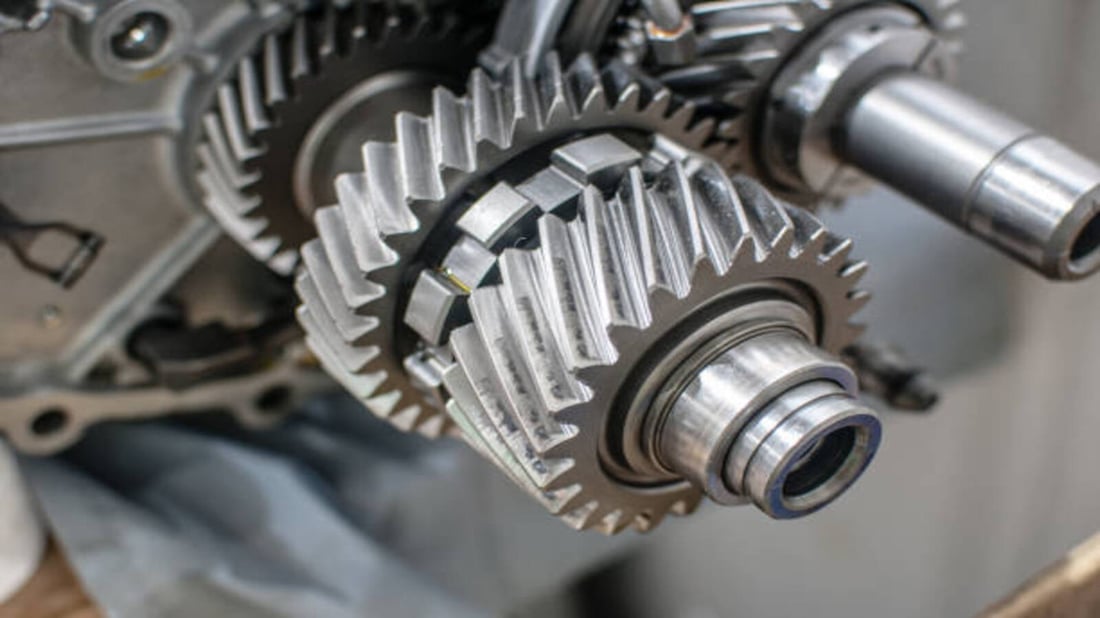The Importance of Gearbox Design in Vehicle Performance
When it comes to designing a high-performance vehicle, every aspect of the vehicle is important, including the gearbox. The gearbox is responsible for transmitting power from the engine to the wheels, and its design plays a crucial role in determining how efficiently the power is transmitted and how the vehicle performs on the road. In this article, we will explore the different aspects of gearbox design that can affect vehicle performance.
Gear Ratios and Acceleration
One of the key factors that affects vehicle performance is the gear ratio of the gearbox. The gear ratio determines how much torque is delivered to the wheels for a given engine speed. Gearboxes with shorter ratios provide more torque, but at lower speeds, which can improve acceleration. On the other hand, gearboxes with longer ratios provide less torque, but at higher speeds, which can result in better fuel efficiency.
Gearbox Weight and Efficiency
The weight of the gearbox can also affect vehicle performance. A heavy gearbox can increase the overall weight of the vehicle, which can reduce its acceleration and fuel efficiency. However, reducing the weight of the gearbox can be a challenge, as it needs to be strong enough to handle the power and torque of the engine.
Manual vs. Automatic Gearboxes
Another factor that affects vehicle performance is the type of gearbox used. Manual gearboxes are more responsive and can provide better control, but they require more skill to use effectively. Automatic gearboxes are easier to use, but they can be less efficient and may not provide the same level of control as a manual gearbox.
Gearbox Materials and Durability
The materials used in the construction of the gearbox can also affect its performance and durability. Gearboxes made from lightweight, high-strength materials like aluminum or carbon fiber can reduce the weight of the vehicle, but may also be more expensive to produce. Gearboxes made from less expensive materials like cast iron or steel may be heavier, but can also be more durable and reliable.
Transmission Cooling and Performance
The temperature of the gearbox can also affect its performance. If the gearbox gets too hot, it can cause damage to the gears and other components, which can lead to reduced performance and reliability. Gearboxes with effective cooling systems can help maintain optimal temperatures, which can improve performance and longevity.
Number of Gears and Performance
The number of gears in a gearbox can also affect vehicle performance. Gearboxes with more gears can provide greater flexibility in terms of power delivery, which can improve acceleration and overall performance. However, gearboxes with more gears can also be more complex, which can increase their weight and cost.
Gearbox Noise and Comfort
The noise level of the gearbox can also affect the comfort of the vehicle. High-performance gearboxes can produce a lot of noise, which can be tiring for drivers and passengers over long distances. Gearboxes with quieter operation can improve the overall driving experience and make the vehicle more comfortable to drive.
Gearbox Mounting and Suspension
The way the gearbox is mounted and connected to the suspension can also affect vehicle performance. A poorly designed mounting system can cause the gearbox to vibrate or shift during operation, which can result in reduced performance and reliability. A well-designed mounting system can improve the overall stability and handling of the vehicle.
Shifting Speed and Performance
The speed at which the gearbox can shift gears can also affect vehicle performance. Gearboxes with faster shifting times can provide quicker acceleration and improved performance, as the engine can deliver power more efficiently. However, faster shifting times can also require more complex and expensive equipment.
Gearbox Maintenance and Performance
Finally, the maintenance of the gearbox is also important for maintaining vehicle performance. Regular servicing and maintenance can help identify and address any issues with the gearbox, which can improve its overall performance and longevity.
Gearbox design, vehicle performance, gear ratio, gearbox weight, manual gearbox, automatic gearbox, gearbox materials, transmission cooling, number of gears, gearbox noise, gearbox mounting, shifting speed, gearbox maintenance
How Gearbox Design Affects Vehicle Performance
Learn about the different aspects of gearbox design that can affect vehicle performance, including gear ratios, gearbox weight, and the materials used in construction.
Quote Inquiry
Contact us!

